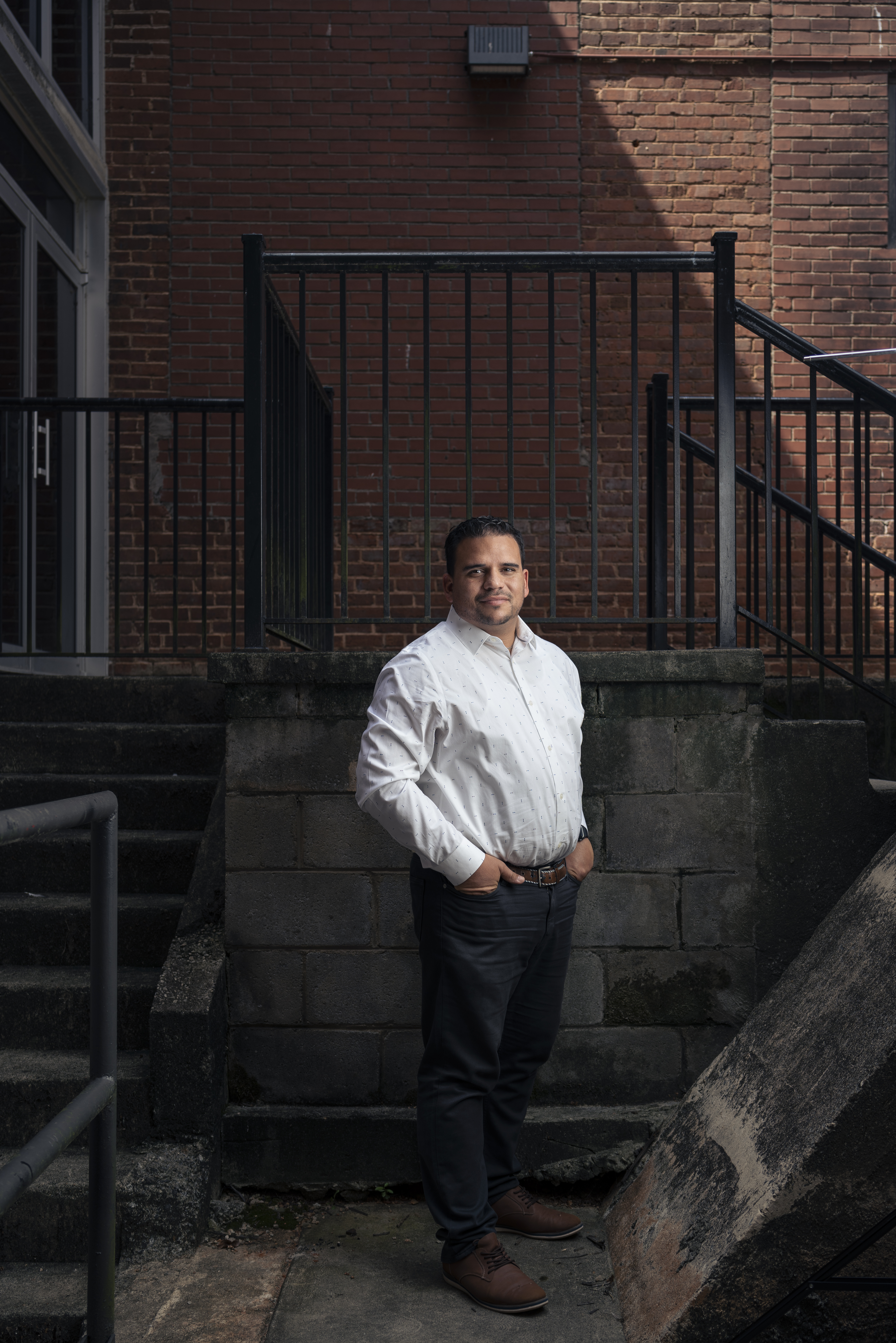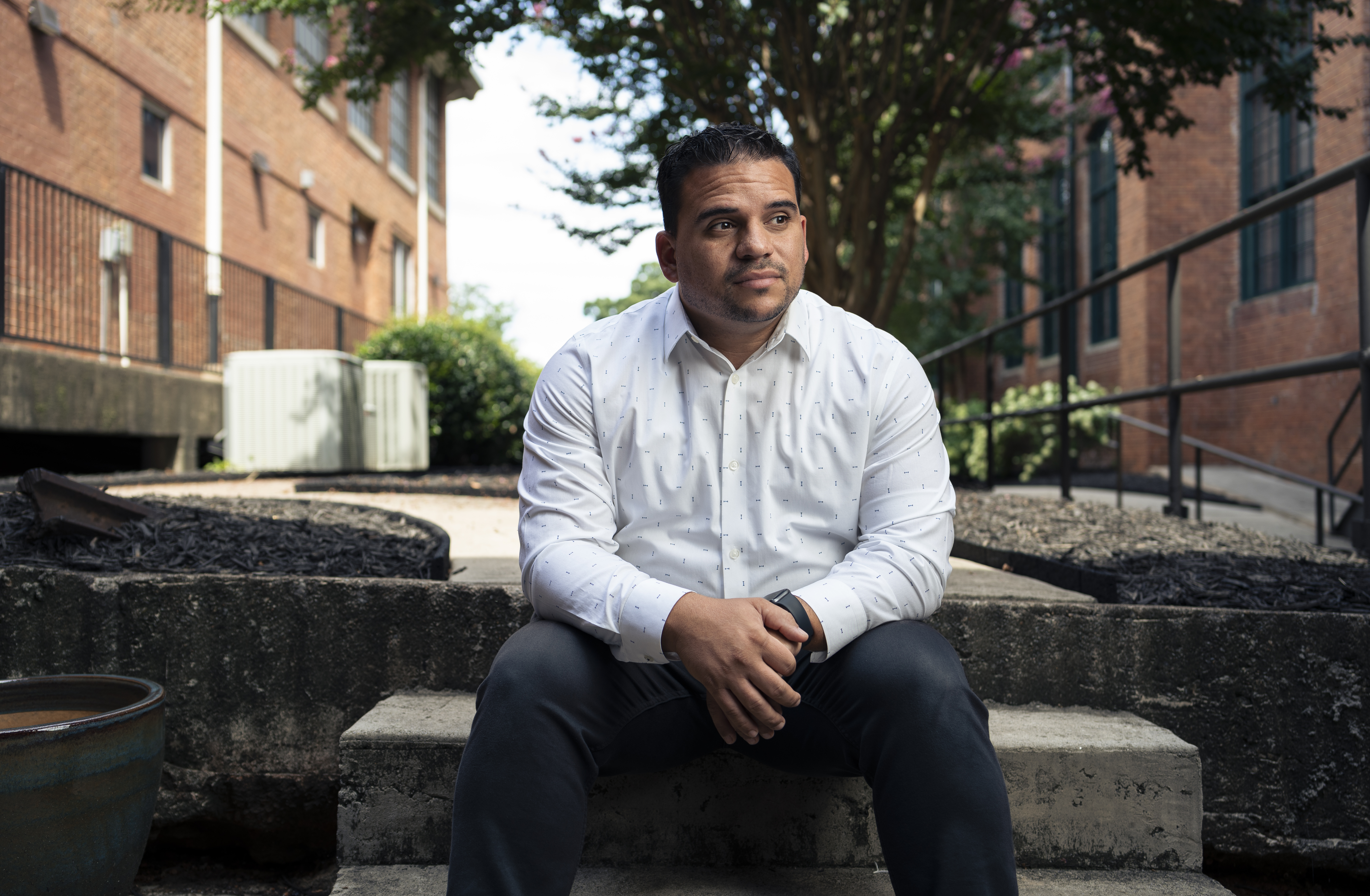Do you ever feel lonely or isolated as a business leader?
I won't lie to you, yes. Even if you have business partners, you could feel lonely at times of making decisions.
But that's what leadership is. That's an entrepreneur. You’re it. Ultimately, you're making that decision, and sometimes you stand by yourself alone. And it's not a bad thing, but that’s why I truly believe in having a group of people, counsel, then it doesn't feel as lonely.
But yeah, it’s real. I think a lot of people don't admit it, though, and they should. But the ones that do admit it, it’s because they have a good group of people that advise them that are there with them. I'm not even talking about a board of advisors or even the business partner. I'm talking about just that round table of people that are just around you. And that’s why I don’t feel that way anymore. At the beginning, I felt lonely, but that’s normal.
A lot of founders find that as they become more established in business, it’s harder to find peers who can relate to their experience. Has that been true for you?
Yeah. I think that happened to me in the first five years of my business.
I think I caught it early. When I was having a lot of difficulty, a lot of different things, we just didn't know what to do in certain situations. We needed some mentors for me individually as the agency leader, but also people that saw our business holistically and were sort of consultants.



What I'm afraid of is sometimes I think that businesses don't catch it early, don't catch the fact that they need mentors. By the time they realize, it's too late.
Have you joined a formal founder group like E.O. or Vistage?
Yeah, I've been part of that. If you really prefer that type of group setting, then that's fine. I just have more mentors individually that are helping me.
It also depends on like how you allocate your time. Because in a group situation you're hearing from five, six people, right? That’s two or three hours. You're investing a lot. I'm more sporadic, and throughout the month I'm engaging with different mentors and advisors. There’s no wrong or right way.
What’s a time that mentorship helped you?
This is a beautiful example of something small that had a huge impact. Whenever I was client-facing, a mentor heard me saying “I” did something. He really forced me to think more about “we” developed this. Because at the end of the day, people want to hire the group thinking of the agency, not just you.
Employees would never tell me that, and another partner would probably have been making the same mistake. But a mentor shows you those blind spots.
Have you outgrown mentors as your needs change?
I thought that I was gonna have the same ones forever. Some mentors are always going to be there for you emotionally. No matter how big this company will grow, you need those types of people. I have some that just have not changed for years.
But I've had many that were just for a season. Natural things happen; they move away, retire, or get busy—life changes. Other times, UMG’s priorities have changed, and we need bigger thinking or different expertise.
It’s always hard to lose that because you develop a friendship. But I keep in contact with them, if infrequently. They helped you in the beginning; they're still over there for you. The right mentor will say, “I can't help you on this, but I can recommend somebody.”
What needs are long-term mentors filling, needs that haven’t changed?
I have one that I've been meeting once a month for about eight years now. No matter the situation, work or personal, he boils it down like, “Ramon, in this situation, what is the expectation you have for yourself? What do you expect from them, and what do they expect from you?”
It could be a negotiation for a thousand-dollar project, or it could be a negotiation for a million dollar one. He keeps me focused on those, on the fundamentals.
What are some emotional issues you didn’t expect to deal with as a leader?
I think the big thing in our industry is when clients leave. It feels like a sour note, right? Like, what did we do wrong? I learned that the same way that you get a new client, that beautiful process of onboarding and kickoffs, you need to have that same attitude toward the end. I tell team members that I open the door for this client, and we all work on it, then I’m the one closing it. I’m always the last one.
The reason they leave could be economic, or a personnel change. Or it could be that, yeah, we did something wrong. Whatever the situation is, always strive to keep an open door with that client. Sometimes clients come back, or they recommend someone else to you. And that's always surprising to me. I'm just glad I didn't burn the bridge.
Twelve years in, how much of your personal identity is still synonymous with the business?
I'm not gonna declare myself a greatest entrepreneur, but I believe that there is a big separation between good entrepreneurs and the greatest entrepreneurs. And the main difference is that the great entrepreneurs have what I call a core ideology. This comes from Jim Collins' book, “Good to Great,” and things like that.
What I mean is, let's say my business fails today. That doesn't stop me from being who I am. I strive to see businesses grow, and guess what? I'm still gonna go after that.
UMG is not my identity. UMG is what I do. It's part of contributing to the community and to companies, but it's ultimately a means to my core ideology of helping businesses, of growing people, and having an impact in the community in a positive way.